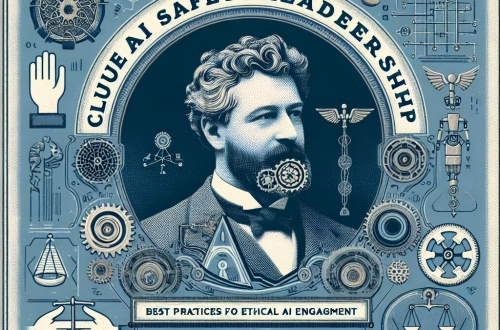Summary:
Claude and ChatGPT are two leading AI models transforming business applications with distinct strengths. Claude, developed by Anthropic, emphasizes safety, ethical alignment, and long-context understanding, making it ideal for compliance-heavy industries. ChatGPT, from OpenAI, excels in creative content generation, coding assistance, and broad adaptability. Businesses must evaluate factors like accuracy, cost, and integration ease when choosing between them. Understanding their differences ensures optimal AI deployment for productivity, customer service, and decision-making.
What This Means for You:
- Cost vs. Performance: While ChatGPT offers a freemium model, Claude may provide better value for enterprises needing high-context comprehension. Assess your budget and scalability needs before committing.
- Industry-Specific Fit: For legal, healthcare, or finance, Claude’s safety features reduce risks. For marketing or development, ChatGPT’s versatility shines. Match the AI to your sector’s demands.
- Integration Ease: Both tools support API integrations, but ChatGPT has broader third-party plugin support. Check compatibility with your existing CRM, ERP, or analytics platforms.
- Future Outlook or Warning: Rapid AI advancements mean today’s leader could be outdated tomorrow. Invest in flexible solutions and stay updated on model upgrades to avoid obsolescence.
Claude vs ChatGPT: Which AI is the Better Business Partner?
Understanding the Contenders
Claude and ChatGPT represent the forefront of conversational AI, but their architectures differ significantly. Claude, built by Anthropic, prioritizes alignment with human values through Constitutional AI, reducing harmful outputs. ChatGPT, powered by OpenAI’s GPT models, focuses on broad knowledge and creativity. Businesses must weigh these philosophies against operational needs.
Strengths of Claude for Business
Claude excels in handling long documents (100K+ tokens), making it ideal for contract analysis, research summarization, and regulatory compliance. Its refusal to engage in unethical queries suits industries like healthcare and finance. For example, insurance firms use Claude to parse policies without hallucinated clauses.
Strengths of ChatGPT for Business
ChatGPT’s strength lies in creative tasks—generating ad copy, debugging code, or drafting emails. Its plugin ecosystem connects to tools like Zapier, enhancing workflow automation. Retailers leverage ChatGPT for personalized customer interactions at scale, while startups use it for rapid prototyping.
Limitations to Consider
Claude’s cautious approach may reject valid business queries deemed risky. ChatGPT, while flexible, sometimes produces plausible but incorrect answers—a concern for data-sensitive operations. Both models struggle with real-time data unless integrated with live databases.
Pricing and Scalability
ChatGPT’s free tier attracts SMBs, but Claude’s pay-per-use API can be cost-effective for enterprises processing large volumes. Always calculate cost-per-output when scaling deployments.
Implementation Scenarios
- Customer Support: ChatGPT handles high-volume tickets; Claude ensures compliant responses.
- Data Analysis: Claude summarizes reports accurately; ChatGPT visualizes trends conversationally.
- Legal Drafting: Claude’s precision reduces liability risks in contract reviews.
People Also Ask About:
- Which AI has better accuracy for financial reports?
Claude typically outperforms in accuracy for numerical and compliance-driven tasks due to its training on precise data interpretation. However, always verify outputs with domain experts. - Can these AIs replace human employees?
No—they augment roles. Use ChatGPT for drafting sales pitches, but humans should refine tone. Claude assists lawyers but doesn’t replace legal judgment. - How do they handle non-English business contexts?
ChatGPT supports more languages, but Claude’s English proficiency is superior. For global operations, test both with localized datasets. - What’s the learning curve for teams?
ChatGPT’s intuitive chat interface requires minimal training. Claude demands clearer prompt engineering for optimal results—budget for upskilling.
Expert Opinion:
Businesses should prioritize AI models that align with their risk tolerance and operational scale. While ChatGPT dominates in accessibility, Claude’s safety mechanisms prevent costly errors in regulated sectors. Expect convergence in capabilities as competition drives innovation, but ethical considerations will remain a key differentiator. Always conduct pilot tests before full deployment.
Extra Information:
- Anthropic’s Claude Documentation – Details on constitutional AI and enterprise use cases.
- OpenAI’s Business Solutions – Explains ChatGPT’s API and industry applications.
- Gartner’s AI Comparison Guide – Neutral analysis of model performance metrics.
Related Key Terms:
- Best AI for business document analysis 2024
- Claude vs ChatGPT API pricing for enterprises
- Ethical AI models for healthcare compliance
- ChatGPT plugins for e-commerce automation
- Long-context AI for legal contract review
- Anthropic Claude UK financial services
- OpenAI ChatGPT customer support integration
Check out our AI Model Comparison Tool here: AI Model Comparison Tool




